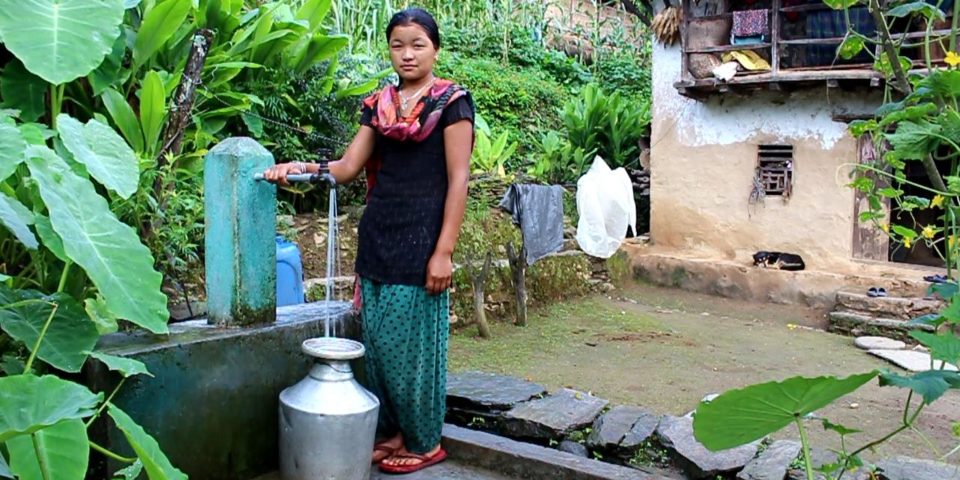In Nepal’s Rolpa district, a Consortium project provided a communal water system with private taps and water meters, which replaced the existing public taps. In order to guarantee sustainability of the communal water system, the following institutions and mechanisms were put in place:
- A water tariff paid into an operation and maintenance fund by each household.
- A plumber specifically trained by the project who is responsible for operation and maintenance of the water system and reading the water meters.
- A water user and sanitation committee consisting of selected members of the community meets on a monthly basis. The role of the committee is to administer the operation and maintenance fund as well as to select and monitor the activities carried out by the plumber.
In comparison with the public taps that were previously used in this area, the private taps including meters have the following advantages:
- The ownership for the tap has increased since the tap is now no longer public, but on the private property and each household is responsible to maintain its own tap. A 2% financial and 20% labour contribution by the community and strong engagement of users from the start further strengthen ownership of the entire water system.
- Operation and maintenance of the water system is ensured through tariff collection, which allows to feed an operation and maintenance fund.
- Professional operation and maintenance is guaranteed through a trained plumber, paid out of the water fund.
- Enormous time savings by community who previously needed 1.5 hours to fetch water. This time is now available for other tasks, e.g. increasing agricultural production.
- The communal water system provides safe water directly to the house, which, according to the beneficiaries, has lead to a decrease in diarrhea and water-born diseases.
- Reuse of greywater in kitchen garden is promoted by the project. This reduces the quantity of water which is used for irrigation.
The project has generated much interest and has been covered by different national media and newspapers in Nepal. The project has also been presented and shared as a good practice on regional level and Consortium-wide. Other Nepal-based projects have replicated the successful project. Since this promising approach is also promoted by the government, it is very likely that this success story will further be replicated in Nepal.
The experiences have been documented and shared in the video presented at the Regional workshop 2016 in Bardiya, Nepal.

